How to deal with cobwebs on a room rose?
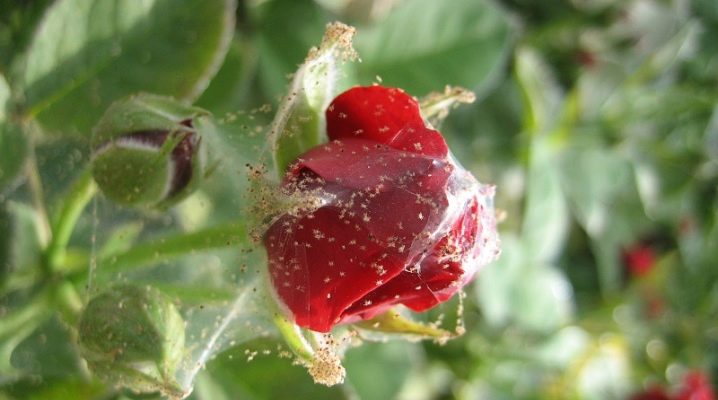
Very often, apartment owners grow roses at home. These flowers are quite capricious, and if you do not follow all the rules for care, a number of troubles may arise. One of them is the appearance of a small thin web on the leaves. Let's take a closer look at what this may be related to, why it is dangerous, and how to get rid of the misfortune.
The reasons for the appearance of the cobweb
There is only one reason for the appearance of a fine mesh on the leaf plates. This is the result of the "work" of a spider mite - a microscopic insect that loves to parasitize on plants. It is impossible to see it on roses, except perhaps with a magnifying glass. But the cobweb is visible to the naked eye. One of the main features of a spider mite is its ability to reproduce rapidly. A pair of insects quickly creates a whole colony, which is distinguished by its enormous vitality.
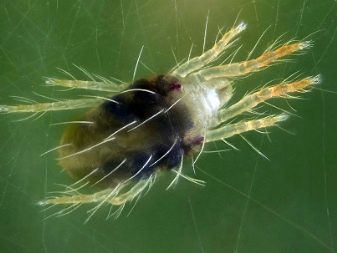
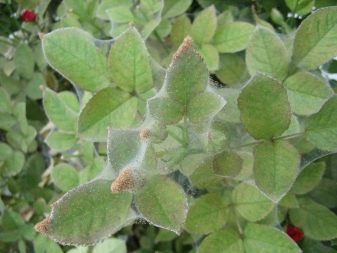
Spider mites appear on home potted roses for several reasons.
- Wind... If there is no grid on the window, and you live on the lower floors, then the insects may well be brought in by a draft. Having found a food source, the tick instantly settles in a new place.
- Dry air... Street roses are sick in hot summers in the absence of watering and rainfall. Pets most often get sick in winter, when the air in the apartment is very dry due to the batteries.
- Poor immunity. The reason that the foliage is covered with a thin spider web may be a weakened immune system. Such plants fall ill in the first place and die very quickly due to the attacks of the parasite.
The activity of spider mites carries the following dangers.
- Shrinking... The infected rose dries quickly, its foliage begins to wither, become covered with dark spots. The drier the air in the room, the faster this process takes place.
- Loss of beautiful appearance... The plant becomes lethargic, stops blooming, and if it blooms, then small and unattractive buds. The petals dry out quickly.
- Loss of immunity. Feeding on plant juices, mites weaken it and endanger it. Such plants can get sick with anything. In addition, parasites themselves are carriers of dangerous ailments.

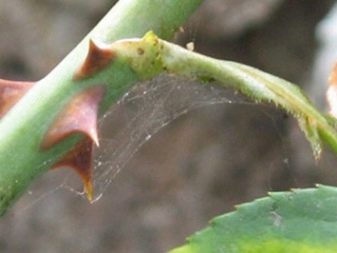
Control measures
If a rose dries up, then first of all you need to make sure that it is struck by a spider mite. The leaves of the plant on the underside are covered with yellowish specks - this is the first stage, indicating that the clutch has been made. Further, the rose will gradually become covered with cobwebs, the mesh will spread not only to the leaves, but also to the stem and buds.
Without proper treatment, the culture dies in 2-3 weeks.... Therefore, you should fight the cobwebs on a room rose as quickly as possible. There are several ways to do this, but a combination of two or three options is the best choice.
Mechanical
If a cobweb appears, then you can try to get rid of it using mechanical methods. There are two ways here. In both of them, the first step is to remove the infected foliage. Then we proceed as follows.
- Water the plant well and cover it with a plastic bag. Leave it as it is for 3 days. Ticks do not tolerate moisture.
- Take a laundry soap and rub it on a sponge or cloth. Carefully treat the foliage with it, especially the lower part of it, where the pest is hiding. Leave the soap on the leaves for a few hours, then rinse off, but so that it does not get into the ground. One such time will not be enough, so you will have to carry out several treatments.


Chemicals
If the ticks have completely entwined the flower, then it is still possible to cure it. However, for this you have to take chemicals. Here is a list of funds tested by gardeners and ordinary residents of apartments.
- Actellik. This is one of the most effective drugs, but it is very poisonous, so you need to work with it carefully. To make the correct concentration, 1 ampoule is diluted in a liter of water. Then the foliage of the flower is sprayed with the agent, especially from below. After a couple of minutes, the mites will suffocate from the poison. A week later, the roses are processed again.
- Apollo. This product destroys only insect masonry. It does not kill adults, but completely deprives them of the ability to reproduce. To prepare the composition, you need to dissolve the ampoule in 5 liters of water, and then spray the rose in the pot. After a couple of weeks, you can repeat the treatment.
- "Nissoran". The principle of this remedy is similar to the previous one: it also sterilizes insects. A gram of the drug is enough for a liter of water. Processing is carried out by spraying, it is carried out once. However, the agent succeeds in completely destroying ticks only in 10 days, therefore, it is not recommended to process heavily infected bushes on the verge of death.
- "Fufanon"... A very active drug, extremely toxic to ticks. Kills a colony of parasites in 24 hours. But you cannot use it all the time, since the ticks quickly adapt to it. For dilution, 5 ml is enough for 5 liters of water.
- Fitoverm... This is one of the most harmless drugs for humans, it can be processed even with closed windows. To prepare it, you need to take a liter and a quarter of water, and then dissolve 2.5 ml of the drug in it. You will have to process it repeatedly, about 4 times. The interval between procedures is a week.
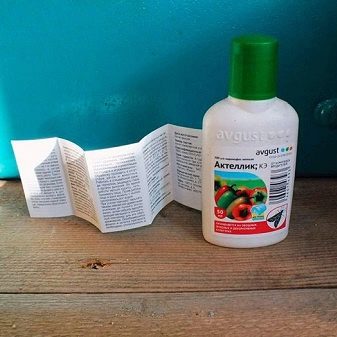
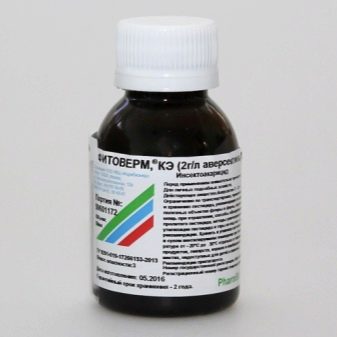
It should be understood that aggressive chemical substances can be hazardous to human and animal health. Therefore, for an apartment it is worth choosing the least toxic drugs. If only poisonous agents are available, the following rules must be learned:
- processing behind closed doors is prohibited (except for "Fitoverma"), therefore, the procedure is carried out on the street or on the balcony;
- block access to the rose for children and make sure that pets do not get to the sprayed flower;
- carry out all spraying in a protective mask, goggles and gloves;
- cover the soil with a bag for the duration of the treatment so that the insecticide does not get inside;
- with the same package, the rose is closed after processing for 24 hours.
Important: ticks quickly adapt to drugs, so they need to be changed frequently. The active ingredients must be different. In addition, it should be borne in mind that the constant and uncontrolled use of chemistry will lead to an increase in the level of nitrogen in the soil. Such roses will stop blooming.
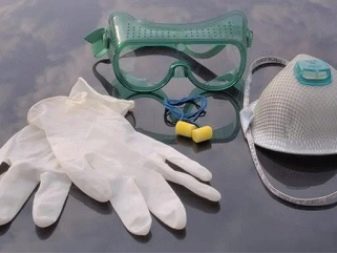
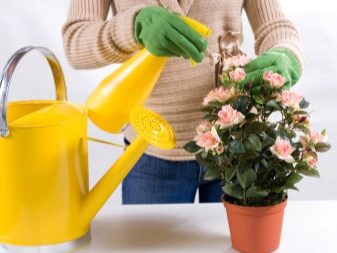
Traditional methods
For minor infections, some home remedies can be used. Here are the most effective ones.
- Garlic... You need to take 0.5 kg of raw materials, chop finely and pour 3 liters of water. Then put the container in a dark place for 5 days and close it with a lid. After this time, strain the composition, take 60 ml and pour into a 10-liter bucket. Pour 50 g of grated laundry soap there. Carry out processing of foliage and substrate.
- Henbane... It is necessary to prepare a kilogram of dried black henbane and pour the raw material with 10 liters of water. Insist half a day. Then strain, mix with 50 g of soap and spray the foliage.
- Onion husks... Take 0.1 kg of onion peel, supplemented with 5 liters of water. After 5 days, the infusion will be ready. It must be filtered and used for spraying the leaves.
- Dandelion... You need to take 30 g of dandelion roots, add 1000 ml of water. After 3 hours, strain and use as directed.
In addition, people who have a summer cottage can use the following means:
- tobacco;
- tops of potatoes or tomatoes;
- horseradish.
In some cases, the use of alcohol is effective. It is necessary to slightly moisten a cotton swab and wipe the leaves.Wipe lightly, and it is advisable to test on a separate sheet before processing the entire plant. In addition to using various techniques, it is recommended to transplant indoor roses into another soil, since the larvae can remain in the soil for up to 5 years. The new composition and the pot must be disinfected, and the rose should be shaken off the earthy coma as much as possible and processed.


Prophylaxis
Fighting spider mites is a long task, and in order not to waste money on drugs and time for destruction, it is better to understand in advance several important rules for preventing its appearance.
- Inspect potted plants frequently. This way you can recognize the pest before it has bred.
- Maintain the correct microclimate. The rose should not be kept in dry air and heat. Do not place the flower near radiators or other heating devices. Give it a cool spot during the winter. It is recommended to place several containers with water in the room or install a humidifier.
- Give your flowers a warm shower. This can be done a couple of times a week. Cover the soil and bathe the flower under warm water jets. Or spray it regularly with a spray bottle.
- Keep the rose area clean. The window sill on which it stands must be washed a couple of times a month with laundry soap. Timely washing of curtains and curtains will also be useful. In addition, it is also recommended to wipe the pot with a rose with soapy water.
- When buying new plants, take your time to place them next to the rose. Keep them in a separate quarantine room for 14 days. Orchids are never placed next to each other, since they are also susceptible to attacks from this pest.
- Take good care of your culture... Follow the regime of watering, dressing. Remove fallen leaves from the ground.
From time to time, you can carry out treatments with biologicals.
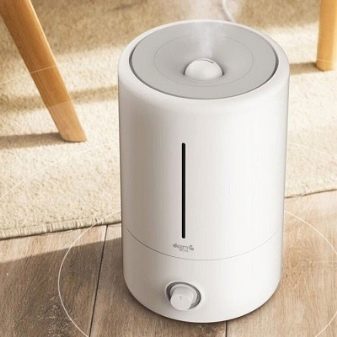
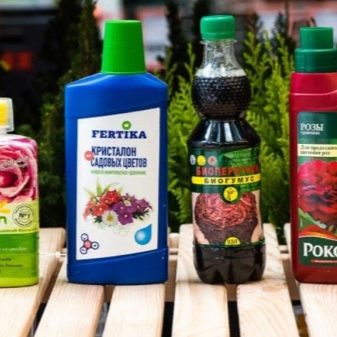





















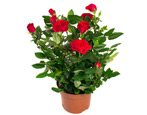











































































The comment was sent successfully.